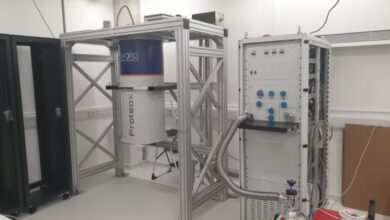Breakthrough in Cancer Treatment: Transforming Cancer Cells into Normal Cells

Groundbreaking development in the fight against cancer, researchers from the Korea Advanced Institute of Science and Technology (KAIST) have developed a pioneering technology capable of reverting cancer cells back to their normal, non-cancerous state. This innovative approach represents a significant shift from traditional cancer therapies that typically aim to kill or remove cancer cells, often leading to harmful side effects due to the destruction of healthy cells alongside cancerous ones.
Led by Professor Kwang-Hyun Cho from KAIST’s Department of Bio and Brain Engineering, the research team has introduced a method that utilizes a systems biology approach combined with digital twin simulation analysis. This technology focuses on identifying and manipulating key control factors within the gene network of colon cancer cells, guiding them back along their differentiation trajectory to mimic normal colon cells.
The study, which has been published in recent scientific literature, showcases the potential of this technology through both molecular cell experiments and animal studies. By understanding the differentiation process of normal cells, the team was able to pinpoint specific genetic pathways that, when altered, could reverse the cancerous state of the cells.
“This is not just about controlling cancer; it’s about reversing the damage,” stated Professor Cho. “By using a digital twin to map out the gene network, we can now systematically approach cancer reversion, offering a new paradigm in cancer therapy.”
The implications of this research are profound. Unlike conventional treatments like chemotherapy, which can be indiscriminate in their cell-killing approach, this new method aims to be more precise, potentially reducing the severe side effects associated with current cancer treatments. The technology could pave the way for personalized medicine, where treatments are tailored based on the genetic makeup of a patient’s cancer cells.
The research has received attention from both the scientific community and the public, with posts on X (formerly Twitter) highlighting the potential of this breakthrough. “A groundbreaking technology has been developed that can convert cancer cells into normal cells, offering new hope for cancer treatment,” one post noted, reflecting the optimism surrounding this development.
While the technology is still in the early stages and requires further validation through larger-scale studies and human trials, the initial results are promising. The next steps involve expanding this approach to other types of cancer and ensuring that the reversion process can be reliably replicated across diverse genetic landscapes of different cancers.
This advancement not only opens new avenues for cancer research but also challenges the traditional paradigm of cancer treatment, highlighting a future where cancer might be managed by reprogramming rather than destroying cells.




